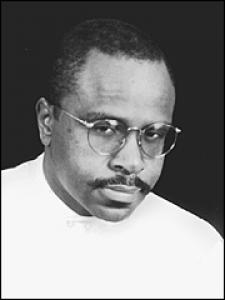Robert Malone head, of The Malone Group of Houston, Texas, had been practicing as an accountant for eight years when he found he needed management training to expand.
My revenue had plateaued," says Malone. "It had been pretty much constant for three years. I needed to expand the things I could do, but I needed help from my staff and I just wasn't getting that help. So my interest in management was from looking for a way to generate revenue.
About that time, I got some promotion from Sterling and they followed up and invited me to a seminar. I liked it, but I hesitated for almost a year, because of the fee, which I thought at the time was substantial.
But what happened was, things didn't get better, they got worse. In February, my manager quit. So I had to develop some managerial skills fast. She had also been doing the compilation work, so I had to get that done and do all the tax returns, too. And I had to replace her.
Well, that convinced me about the Sterling program," says Malone, "and one of the first things they helped me with, they helped me do a better job of hiring, of picking the right people. And we also did a survey of the staff, testing and reviewing, to find the problem employees and get rid of them.
Anyway, I got through tax season and in September I went to Glendale to do the training. I was very impressed with the way the place was run, especially since the people there all seemed happy and they all know what they were doing.
There was good material on improving what an executive is supposed to do to organize a business and how to manage employees, hiring employees and so on. This information dealt with the problems I was having in my practice at the time. I could see how I could use it right away.
So when I got back I started putting the Sterling system into place and the employees' morale started going up, because they could see things getting better.
The employees that didn't want to see any change, we got rid of or they left.
Then, talking to my consultant, we made a couple of directional changes that were major improvements. First the manager that left, didn't like her new job, so we met several times and I gave her the compilation work. I didn't even take any money for it, just gave it to her to get rid of my low-priced business. For me, it had been generating increasing staff costs, but not a lot of revenue. She took that and I kept the financial planning and tax work for these clients.
And I emphasized our services for the large clients, those where we would be doing the banking, managing the money, basically running the companies. And we doubled what we were making from those clients.
What tools did Robert Malone find most valuable in his practice?
For me, the courses on managing by statistics, which is how to manage your business and the Formulas for Business Success, were the best. You use these formulas, which Sterling trains you on, to handle the conditions your business is in, based on the statistics. If you're in a danger condition, then you apply the Danger formula, you use it just one, two, three, four, step by step. They are simple but they work and it is amazing that someone could have worked them out.
I also used the Executive Basics Course, as far as managing the business and arranging the employees and then the Organizational Basics Course, which includes how to write up the 'hats,' which is how each job is done. We wrote all of these up for my practice and so all we need to do if there is a new employee, is to have them read and understand their hat and they're trained. An employee becomes more efficient and quicker, because training time is cut. That efficiency factor is very important.
Robert Malone is very clear that what Sterling teaches is very different from what is usually promoted as business management:
I have a degree in accounting from one of the best schools in the country. I have an MBA from what I know is the best school in the country. And they didn't teach me what Sterling did. The courses I took at Sterling taught me more than all the others. The other schools are theoretical – they may give you some theory, but Sterling gives you the "how to."
I would say something else, which is that I talk with a lot of accountants and most accountants have peaked in their practices, because they need help, but they don't know to get it. They don't know how to hire and then train that help. Sterling can help them with that and Sterling can rejuvenate the accountant and help take the practice to a new level.

